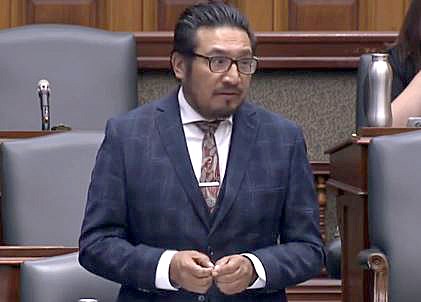The decision by the country's top court to dismiss the appeal of St. Anne's Residential School is a demonstration of the 'injustice system for Indigenous people,' says Kiiwetinoong MPP Sol Mamakwa.
Earlier this week, the Supreme Court of Canada ruled against the survivors of the school near Fort Albany in their efforts to obtain withheld documents stemming from a probe into abuse.
Mamakwa, the Ontario NDP's critic for Indigenous and treaty relations, said it's saddening but he also feels anger about the decision.
“When you first hear about it, it was very saddening but you also cannot help but feel anger about the decision,” Mamakwa said.
“But also you are not surprised. You are not surprised because oppression and colonialism have become a way of life for the First Nations here in Canada. I thought that the system that’s there, the justice system was not created for Indigenous people. It’s created for others, and we didn’t create that justice system. I think the decision is a marker of the bigger issues that the institutions, the Government of Canada, are not ready to go towards the path of justice, the path of healing. This is not a justice system. This is an injustice system for Indigenous people.”
The legal dispute dates back to 2007, when the federal government began the process of compensating residential school survivors through settlements. However, the settlement agreement did not include the documents detailing the harrowing abuses they and fellow students suffered when forced to attend St. Anne’s.
Mamakwa argued that if those documents were taken into account, the survivors would be entitled to an adjustment in their settlement agreement.
When asked why the federal government is refusing to release these documents, Mamakwa said those documents hold the real history of Canada. The abuse inflicted on these students and other survivors of residential schools was genocide, he added.
“That is the real history of Canada,” Mamakwa said. “The real history of the way Indigenous people has been treated. I’ve heard from survivors that they had their own homemade electric chair that was the size of a child.
“There is nowhere in Canada where that would be allowed. If that was done to a non-Indigenous person, it would be very different. An Indigenous person wouldn’t do that to them.”
Mamakwa encouraged people to stand together with Indigenous people and break down the oppressive systematic barriers.
“We will continue to stand survivors. We will continue to fight for survivors. We will continue to fight for the families of survivors, the intergenerational survivors. We need to continue to fight the system that continues to fight against the Indigenous people” he said.
